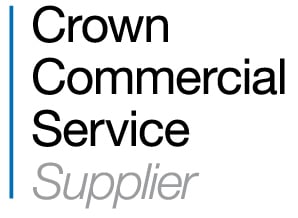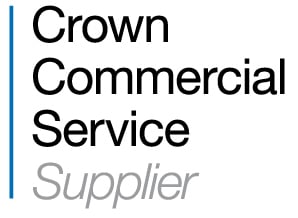DDaT Profession Capability Framework Training – Digital Delivery Management

This is an open programme and an in-house training course, which we can deliver either online or in person. For further information and pricing contact [email protected] or phone on +44 20 7661 7817.

Global Government Forum, as part of Pendragon International Media Ltd, have been named as a supplier on Crown Commercial Service’s Learning & Training Services DPS Framework. All our Learning and Training services are included in the framework.
Crown Commercial Service supports the public sector to achieve maximum commercial value when procuring common goods and services.
Course Overview
This two-day training course is designed to provide a comprehensive introduction to the role of delivery manager in government digital service teams.
The delivery manager has a critical role within a digital team and is ultimately accountable for the delivery of products and services. The subjects covered will explain and explore the role, and outline the techniques and methods that are essential to understand and master to become a high performing delivery manager.
Using clear examples, practical exercises and case studies, the course will provide the attendees a thorough grounding in what it takes to support the design, creation and operation of services using digital and agile methods.
The course also discusses how the delivery manager works with other key members of the team to deliver digital services, and explores the difference between agile delivery and more traditional delivery methods.
Who is this course designed for?
The seminar is designed for those looking to perform the role of delivery manager in a government context, but is also suited for others looking to understand how digital service delivery works more broadly.
How will you benefit from attending?
You will be confident that you understand the skill and capabilities required to lead the delivery of digital services and what it means to be a digital delivery manager in a government context. You will recognise the risks and opportunities from different approaches to delivery, and how the digital team works with the delivery manager. You will be able to identify common mistakes and challenges to delivery, and recognise strategies to achieve success.
Learning Outcomes
You will understand:
- How a delivery manager works within an agile digital service team.
- The principles of agile, lean and kanban delivery.
- The stages of the digital delivery lifecycle, and key activities for the delivery manager in each.
- How planning and estimating works in agile delivery.
- How to manage budgets and track financial performance.
- The basics of commercial management for agile projects and how this can differ from traditional projects.
- How to ensure agile projects communicate progress and status effectively.
- How to manage agile teams and projects, maintaining momentum and unblocking issues.
- The other key roles in the digital delivery team and how best to work with them as a delivery manager to maximise collaboration and effectiveness.
Agenda
Day One
Start Session One: Introduction to the digital delivery team
- Overview of typical government digital services operation
- Introduction to how to design and build digital services in an iterative way
- Explaining the key roles and activities in the digital delivery team
- Differences between digital delivery and services and traditional services
Discussion
Break
Session Two: Understanding agile delivery in detail
- Introduction to iterative agile delivery
- Overview of the Scrum methodology
- Requirements for delivery in agile
- The agile backlog, estimation and prioritisation
- Working in sprints and tracking progress
- Agile rituals: stand-ups, sprint planning, retrospectives and sprint reviews
- Alternative and complementary agile methodologies
- When and why to use agile delivery methods
Discussion
Lunch
Session Three: The digital service lifecycle
- The lifecycle stages of a digital delivery
- Saving time at the start: running a project discovery
- Learning to prototype: the alpha stage
- Starting small: the beta stage
- Moving to a steady-state: live operations
Discussion
Break
Session Four: The role of the delivery manager in detail
- The delivery manager’s role in agile development
- Communicating progress effectively
- Introduction to budgeting and financial management approaches
- Maintaining momentum and clearing the way for delivery
- Maximising collaboration within the team
- Effective agile planning
- Managing risk in a digital, agile project environment
- Introduction to user-centred design in a digital service
Discussion
Break
Day Two
Session Five: User centred design
- How user-centred and iterative design fit within the agile delivery lifecycle
- Managing the balance between scheduling and value delivery
- The interplay between the delivery manager and product manager
Discussion
Break
Session Six: Budgeting and financial management
- Basics of financial management and operation
- Understanding how to contribute and negotiate budget plans
- Introduction to business case development and concepts of business value
- Tracking and forecasting financial performance
- Communicating financial status effectively
Discussion
Lunch
Session Seven: Commercial management with agile teams
- Basics of commercial management
- Commercial structures for agile teams
- Fundamentals of contract management and supplier negotiation
- Key events that require commercial intervention
Discussion
Break
Session Eight: Considering next steps
- Summary and thinking forward
Final questions and discussion
Close
Please contact us for further details, or to arrange a conversation with a member of our training team to discuss in-house delivery options, including tailoring the day’s training to your specific organisational development needs. You can email David Leakey on [email protected] or phone on +44 20 7661 7817.

Crown Commercial Service supports the public sector to achieve maximum commercial value when procuring common goods and services.








